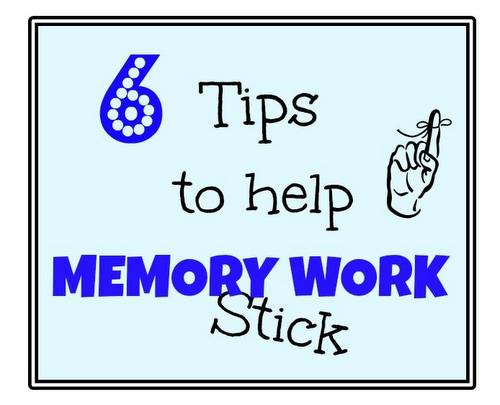advertisement
advertisement
This post is written by contributing writer Becky @ This Reading Mama.
My oldest two boys are currently in a program at church that requires them to memorize new Bible verses each week. I won’t lie. Memorization doesn’t come naturally for either of them and it has been a struggle {to say the least}. But I’ve learned a few tricks as we’ve worked extra hard this year and it’s going better-little by little. Here are six tips we use for helping memory work “stick.”
1. Make it a Part of Your Routine
There’s nothing worse than procrastinating and trying to cram in the memory work before it’s due. This only adds to the stress. Believe me. I know. Practicing needs to be routine.
An easy way to remind yourself to do this is to post the passage to be memorized in a place where it’s easy to see. We have used our kitchen wall, but you could use your mirror or refrigerator. Heather says that she posts the memory work on the dashboard in her car. Every single time she gets in the car, they review the memory work before turning on any music.
Amber shared a Charlotte Mason memory work tip that I found very helpful. It shows you how to set up a memory system for practicing every day.
2. Sing it!
Believe it or not, I know every preposition in alphabetical order. Why? Because I had a 7th grade teacher who taught them all to us with a tune. I can still sing it {and still use it} to this day. I once read that using music to teach triggers both sides of the brain so it helps concepts stick better. While I can’t site my source on that one, I know the reality of it.
Songs can be composed by your child or you can sing it to the tune of another familiar song. Just recently, we sang this verse to the tune of If You’re Happy and You Know It.
Love the Lord Your God with all your heart (clap, clap) Love the Lord Your God with all your heart (clap, clap) Love the Lord Your God, Love the Lord Your God Love the Lord Your God with all your heart (clap, clap)3. Use Movement
Moving the body goes hand-in-hand with the singing the memory work. Motions (like sign language) help the overall concepts from the memory work to be imbedded in the brain. To make it even more effective, you could sing and do motions at the same time! I also love Lauren’s Bible Verse stomp. The movement makes the memory work more fun and gives it a beat.
4. Make it into a Game
- I’ve adapted my Roll and Write a Sight Word game into Roll and Write a Bible Verse with my oldest. Whoever writes the entire verse written first, wins!
- Erase and Say- Write the entire passage to be memorized on a dry erase board. Say it. Then, erase one or two words at the end of the passage. Say it. Erase more words at the end. Say it. Continue erasing words at the end until there are no words left and you are reciting the entire passage with no helps.
- Cut apart the words and put it together like a puzzle. Carisa takes it a step further, taping it back together again. You could also hide the separate words around the room.
5. Apply it
I’m not a fan of memory work for the sake of memory work. Kids need to see the application of what they are being asked to memorize or learn. This works well with things like their address, phone number and Bible Verses, but may be more of a challenge with other memory work.
6. Write and Read It
The more ways we can have our kids interact with the memory work, the better. Copying, writing, illustrating the work, reading it aloud…all of these are great ways to use that brain!
What tips or tricks do you use to help memory work “stick” better? I’d love to hear from you!
Join 40,000+ Other Awesome People
Subscribe to the Real Life at Home weekly newsletter to get our latest content, exclusive free printables, learning activities, and ideas for celebrating with your kids all year


Leave a Reply